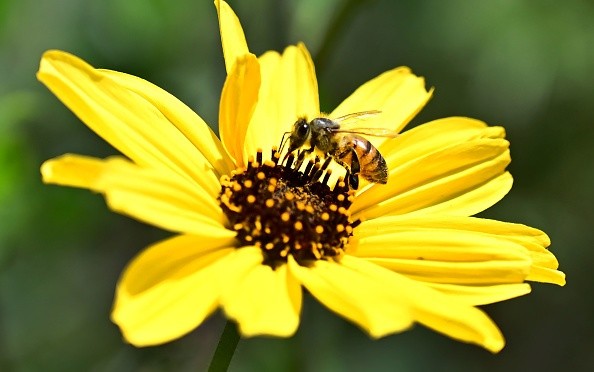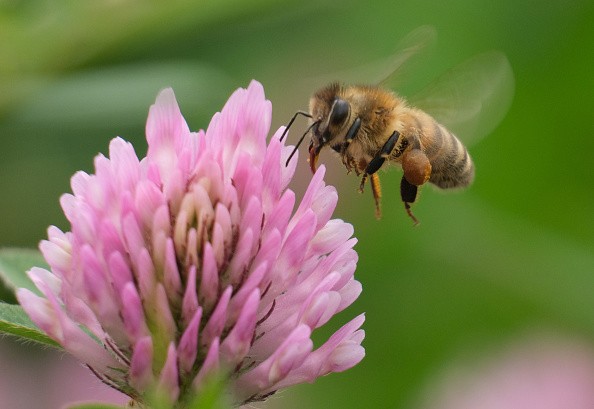A strange species of bees have evolved to consume carrion, unlike other bees that prefer pollen. These species of bees called "vulture bees" have special gut microbes that aid in the digestion of meat.

Efforts to Learn More About Flesh-Eating Bees
A team of entomologists recently put up chicken baits in a Costa Rican jungle in order to learn more about these pollen-eschewing bees. They collected and studied the guts and genetics of a bunch of vulture bees (Trigona necrophaga).
According to Doug Yanega, an entomologist at the University of California, Riverside and one of the paper's co-authors, vulture bees are the only bees in the world that have evolved to utilize food sources that are not generated by plants, which is a very amazing shift in dietary patterns.
In addition to observing the bees' obvious exterior characteristics, the researchers sought to learn more about what is happening inside them. Five types of bacteria assist bees digest their food, and they are found in the digestive tracts of most bees. Pollen is replaced with raw chicken and nectar is replaced with blood.
Bees that only consume meat occasionally and those who are fully vegetarian were gathered to compare the microorganisms in the insects' digestive tracts, according to Gizmodo.
They have a specialized microbiome developed for breaking down meat in their digestive tracts.
According to McFrederick, there are unique bacteria in the vulture bee microbiome that their relatives don't have. To defend themselves against infections on carrion, these bacteria are identical to those found in vultures, hyenas and other carrion-eating predators.
Possible Cause of the Shift in Dietary Pattern
According to the research team, the bees may have started eating meat because they were competing for nectar. Animals may now be on a new evolutionary path, and it's up to humans to make sure they don't develop a taste for human flesh.
Some scientists claim that most bees are basically "wasps that shifted to a vegetarian diet," a claim supported by entomologists from UCR, Massachusetts Amherst and Columbia University, as well as the American Museum of Natural History.
Some bumblebee species are known to sometimes eat carrion in addition to nectar and pollen foraging. There are two documented cases of this in 1758 and 1837. Vulture bees, on the other hand, are called necrophages since they exclusively consume flesh.

How Vulture Bees Were Discovered
It wasn't until 1902 that an entomologist named Filippo Silvestri discovered the first "vulture bee" while investigating specimens pinned to a wall.
Finally, entomologist David Roubik of Smithsonian Tropical Research Institute in Panama published some startling findings in 1982 from his observations of Trigona hypogea colony. Rather than gathering pollen from flowers, this species ate the flesh of dead animals, including lizards, monkeys, snakes, fish, and birds, as well as their eggs and larvae.
Bees that found something to their liking in the corpse's decaying flesh set out to attract the rest of the colony, which typically arrived within eight hours of the pheromones being released.
Trigona hypogea, Trigona crassipes, and Trigona necrophages are three distinct groups of vulture bees that exclusively obtain their protein from carcasses.
In spite of the fact that they don't sting, these bees are capable of biting. Some bites contain substances that can cause blisters and sores that are extremely painful.
Related Article : Fluffy Native Bees are Showing up in Large Numbers in Western Australia
For more news, updates about bees and similar topics don't forget to follow Nature Word News!
© 2026 NatureWorldNews.com All rights reserved. Do not reproduce without permission.





